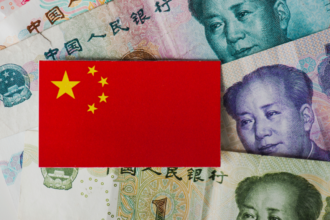Canada Takes Bold Trade Measures
Following comparable steps by the United States and the European Union, Canada has declared a significant change in trade policy that it will levy a 100% tax on electric vehicles (EVs) imported from China.
Tesla Full Self-Driving Signals a New Era in Autonomous Mobility
This action seeks to ease worries about what China’s Western partners see as discriminatory trade policies in the electric car industry. Furthermore, Canada intends to charge a 25% levy on Chinese steel and aluminum, further escalating the trade conflict between the two countries.
Canada's Justification and Strategic Goals
The Canadian government has accused China of extensively supporting its EV sector, giving its manufacturers an unfair competitive edge internationally. Prime Minister Justin Trudeau underlined Canada’s desire to lead in automotive technology. “We are revolutionizing Canada’s automotive industry to be a global leader in building the vehicles of tomorrow,” Trudeau said. “However, actors like China have chosen to give themselves an unfair advantage in the worldwide marketplace.”
Chinese EVs will pay the additional tariffs on October 1, while steel and aluminum imports will pay them on October 15. This choice conforms to the policies adopted by the US and the EU. Echoing the European Union, which intends to levy taxes of up to 36.3% on China-made EVs, the US stated in May it will double its tariffs on Chinese EVs to 100%.
China's Reaction and Trade Disputes
China has fiercely denounced Canada’s action, labeling it “trade protectionism” and contending that it goes against World Trade Organisation (WTO) policies. “The fast development of China’s electric vehicle industry is a result of persistent technological innovation, well-established industrial and supply chains, and full market competition,” says a statement from China’s embassy in Canada. Using comparative advantages and market ideas helps one become competitive instead of depending on government handouts.
This comment captures China’s belief that fundamental market factors rather than unjustified government involvement drive its developments in the EV sector. The Chinese government’s reaction emphasizes the continuous conflicts between China and Canada on trade policies and market access.
Implications for Major EV Manufacturers
Among the automakers anticipated to be affected by the taxes is Tesla, which makes electric vehicles out of its Shanghai facility. A 100% tax on Chinese-made EVs might fundamentally change Tesla’s business approach in Canada. As it has done in Europe, industry analysts believe Tesla would advocate for exemptions or lower these levies to the Canadian government. “Tesla will almost certainly be pushing the Canadian government to get some leeway on these tariffs,” said a sector analyst. “Canada is their sixth largest market this year, thus not insignificant; if they fail to mitigate the tariff enough, they will probably look at switching their Canadian imports to either the US or European factories.”
For the Canadian automotive industry, which has been a significant but secondary market for Tesla, the possibility of the firm changing its import suppliers or manufacturing sites might have substantial consequences.
EU's Adjustments and Broader Impacts
The European Union changed its suggested tariffs on Chinese-made Teslas earlier this month, lowering them by more than half following further inquiries demanded by the carmaker. Notwithstanding these concessions, Western countries’ rising worry about China’s influence in the global automobile sector shows the more significant trend of raising taxes on Chinese electric vehicles.
The changes in the EU draw attention to the intricate mechanics of international trade discussions and the strain big manufacturers experience negotiating these new trade obstacles.
China's Expanding Market Influence and Canada's Strategic Response
Though rare in Canada, Chinese vehicle companies are trying to find their way onto the market. Among those companies trying to be more visible in Canada are BYD. As the top EV producer in the world, China has quickly acquired a sizable portion of the worldwide market, therefore upending established automotive powerhouses.
Canada is aggressively seeking strategic alliances and arrangements with big European automakers. These multi-billion dollar deals fit Canada’s larger plan to take a significant role in the worldwide EV market. By improving its links with European manufacturers, Canada wants to strengthen its position in the fast-changing automotive industry and offset the increasing impact of Chinese EV producers.
Driven by these new trade rules and the continuous competitiveness among big automotive countries, these trade measures will probably cause notable changes in the global automotive sector when they take effect.








